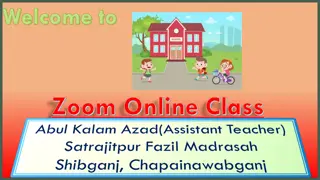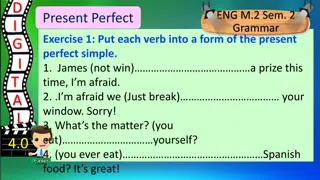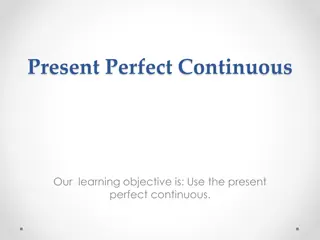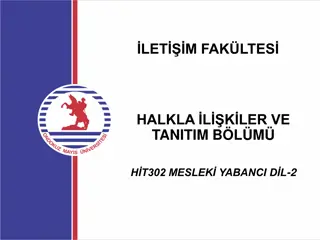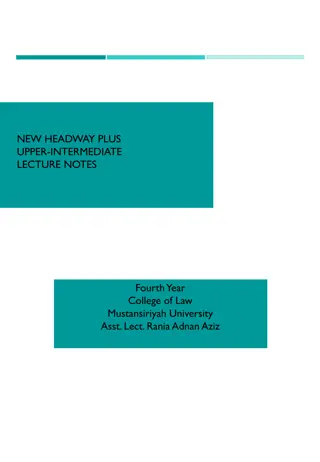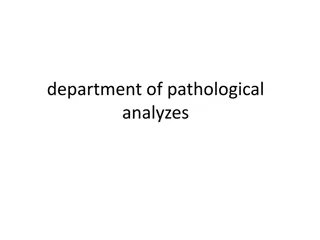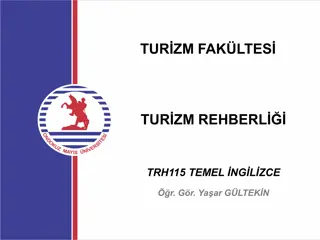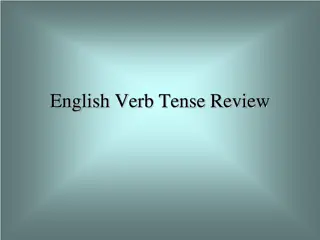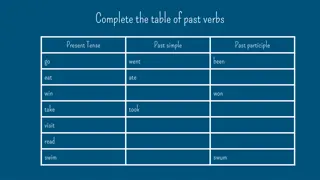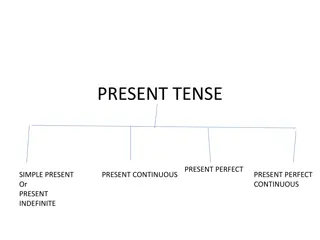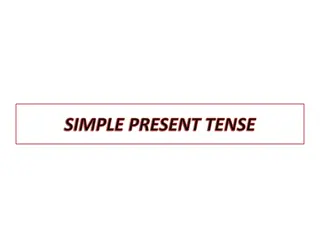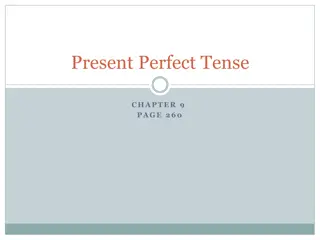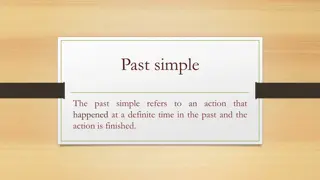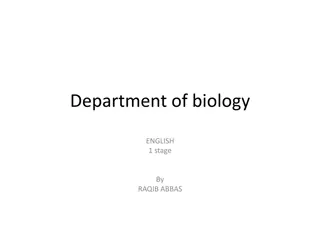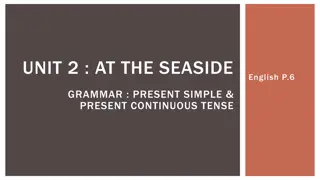Understanding the Present Perfect Simple Tense and Its Usage
Learn about the basic rules, formation, and usage of the Present Perfect Simple tense in English. Explore how to form the tense, use shortened forms, understand when to use "have" and "has" with past participles, differentiate between Present Perfect and Past Simple, know when to use the Present Perfect tense, and identify adverbs of time commonly used with it like yet, already, just, and more. Also, grasp the concepts of SINCE and FOR in relation to Present Perfect.
Download Presentation

Please find below an Image/Link to download the presentation.
The content on the website is provided AS IS for your information and personal use only. It may not be sold, licensed, or shared on other websites without obtaining consent from the author. Download presentation by click this link. If you encounter any issues during the download, it is possible that the publisher has removed the file from their server.
E N D
Presentation Transcript
Present Perfect Simple Form and use
Shortened forms I have = I ve I haven t seen Peter = I ve not seen him = I have not seen him. I have been here since last week = I ve been here since last week. She has just gone out = She s just gone out.
Present Perfect Simple: have / has + Past participle I haven t eaten You haven t eaten He hasn t eaten She hasn t eaten It hasn t eaten We haven t eaten You haven t eaten They haven t eaten Have I eaten Have you eaten Has he eaten Has she eaten Has it eaten Have we eaten Have you eaten Have they eaten I have eaten You have eaten He has eaten She has eaten It has eaten We have eaten You have eaten They have eaten
Present Perfect vs. Past Simple If the time is defined Past Tense is to be used Compare: Where you (BE) __________yesterday? Where (you/be) ____________? I didn t see Peter at the party last night. I ve never seen Peter before.
When to use Present Perfect? For actions that happened but either we do not know when or it is not important when: I have been in London twice. - no time given Similar are the actions which reflect / show RESULTS: I ve broken my leg! I ve made a mistake. I ve read the book. For actions that began in the past and still go on EXPERIENCE I have lived in Slovenia for ten years. I have been at this schoool for nine years.
Adverbs of time with Present Perfect yet negative sentences and questions already just ever / never before so far recently since for But also: Today I haven t seen Peter today. I haven t seen him SINCE last week. I haven t seen him FOR six days. I haven t seen him FOR AGES. BUT: I didn t see Peter at school last week. I saw him when we were at John s party.
SINCE and FOR Try to answer some of the questions below: How long have you had English? HOW LONG have you been at this school? I ve had it for five years. Can you explain the sentence in English? I have been at this school _______ 2002. I started learning English five years ago and I am still learing it. I have been at this school SINCE 2002. How long have you known your English teacher? That is 8 years! I ve known her for two years. Means = Yes, I have been at this school for eight years. We met two years ago and now we know each other.
What has happened? (just / get married) They have just got married.
(just / see a ghost) They have just seen a ghost.
You can try some exercises in your workbook or book as well or online. See you soon!



